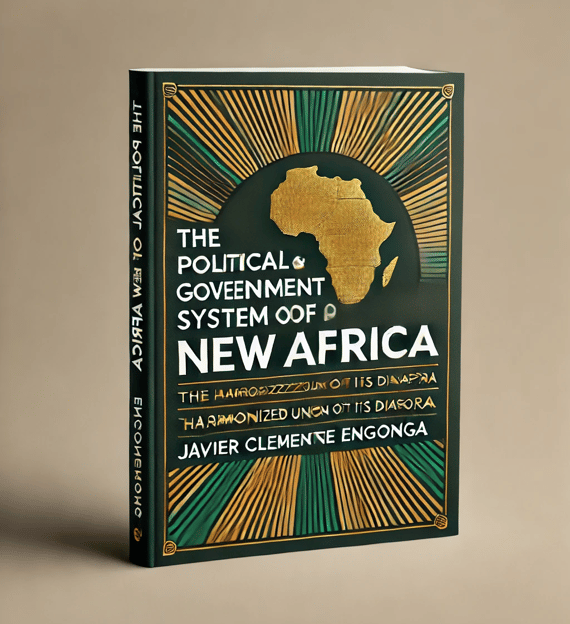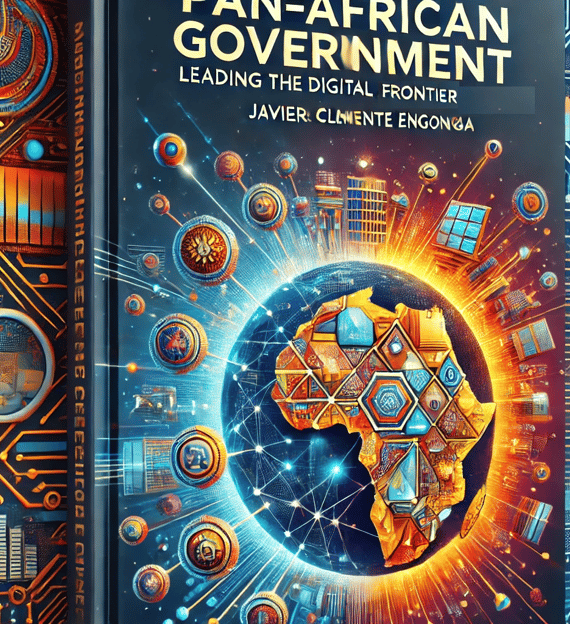


Africa in the Postcolonial Power Game: The Legacy of the Concession Model and the Cold War
Introduction
Africa, a continent rich in natural and cultural resources, has for centuries been the battleground of intense struggles for power and dominance. From the colonial era to the post-independence period, the region's economic, political, and social dynamics have been shaped by exploitation models that favored foreign interests over the well-being of its own people.
One of the main mechanisms behind this imbalance was the "concession model of extraction." This system, introduced by colonial powers and perpetuated after independence, allowed foreign corporations to claim African resources in exchange for minimal royalties, leaving nations in a constant battle for economic sovereignty.
During the Cold War, these dynamics not only persisted but intensified. Global powers—led by the United States, France, and the United Kingdom—maneuvered politically to ensure that the continent's resources continued to fuel their economies. Through a combination of economic, political, and cultural strategies, these nations established indirect control over Africa, ensuring that their corporate interests remained protected. This article examines how the concession model, European power strategies, and the U.S.'s "Cultural Cold War" shaped Africa's economic fate—and how these factors still impact the continent today.
The Concession Model of Extraction
The concession model of extraction was the backbone of Africa’s colonial economy. This system revolved around leasing land and natural resources to foreign corporations, which, in return, paid symbolic royalties to colonial authorities. In practice, this meant that Africa’s mineral, agricultural, and forestry wealth was exploited with minimal benefit for local communities.
The case of South Africa’s mining industry stands out. Since the late 19th century, mining giants such as De Beers and Anglo American controlled the production and export of resources like diamonds and gold while dictating the region’s economic and political dynamics. This model was adopted across sub-Saharan Africa, consolidating an extractive, dependency-driven economic structure.
After independence, many hoped this system would be dismantled in favor of models prioritizing local development. Instead, the concession model persisted, now managed by postcolonial governments that often lacked the technical and financial capacity to exploit their resources independently. This created a vicious cycle of economic dependence that continues today.
The Influence of France and the United Kingdom in Postcolonial Africa
After their colonies gained independence, France and the United Kingdom sought to maintain their influence in Africa through strategies that ensured their political and economic control.
France established what became known as “Françafrique”, a postcolonial bloc designed to keep its former colonies under its sphere of influence. This was achieved through defense agreements, currency manipulation (such as the CFA franc), and support for African leaders who favored French interests.
The United Kingdom adopted a different approach, positioning itself as a middle power with two main pillars: London as a jurisdictional hub and the City of London as a financial powerhouse. Through these mechanisms, the UK maintained control over foreign investments in Africa while safeguarding British corporate rights across the continent. This dual approach ensured British dominance in critical sectors such as mining, telecommunications, and oil.
Both powers consolidated what is known as "gatekeeping politics," where African governments acted as intermediaries between foreign powers and local resources. This system marginalized local communities from economic benefits while entrenching corruption and concentrating power in the hands of political and economic elites.
The Cold War and the Protection of Corporate Interests
During the Cold War, Africa became an ideological battleground between the United States and the Soviet Union. As both powers vied for strategic allies, the U.S. deployed what became known as the “Cultural Cold War”—initiatives designed to promote capitalist values and Western democracy. Beneath this ideological façade lay a clear agenda: safeguarding foreign corporate rights in Africa.
A key U.S. strategy involved leveraging Wall Street’s financial resources. Through arbitration firms and corporate law expertise, the U.S. ensured that foreign corporations' properties and concessions in Africa were shielded from nationalization or local oversight. Additionally, the weakening of international justice institutions, such as those in The Hague, allowed these policies to be implemented without global scrutiny.
The result? A continent where foreign corporations often wielded more power and rights than African citizens. Trapped between foreign pressure and a lack of resources, governments accepted terms that perpetuated economic dependence and exploitation.
Consequences of the Concession Model and the Cold War
The combined impact of the concession model, France and the UK’s postcolonial influence, and Cold War policies left deep scars on Africa. Key consequences include:
Economic Inequality: Despite being one of the wealthiest continents in natural resources, Africa remains one of the poorest regions globally. Wealth concentration in foreign corporations and local elites has marginalized most of the population.
Import Dependency: Many African nations, despite their natural wealth, rely on importing essential goods due to a lack of infrastructure and industrial capacity.
Systemic Corruption: Gatekeeping politics fostered corruption, with local elites using their positions to enrich themselves at the expense of national development.
Armed Conflicts: Struggles over resources like oil, diamonds, and rare minerals have fueled armed conflicts in regions such as the Congo, South Sudan, and Angola.
Weak Governance: Foreign interference and economic dependency weakened African governments’ capacity to implement policies benefiting their citizens.
The Path to the Future
Despite this legacy of exploitation and dependency, Africa has the potential to rewrite its economic and political narrative. Building a more equitable and sustainable future requires a multifaceted approach that addresses structural roots and current exploitation dynamics.
Economic Diversification: Africa must invest in diversifying its economies, moving beyond raw material exports to focus on technology, manufacturing, and services.
Pan-African Unity: Regional cooperation through initiatives like the African Union and the African Continental Free Trade Area can strengthen Africa’s position on the global stage.
Resource Control: African governments must establish policies prioritizing local ownership and participation in resource exploitation.
Transparency and Accountability: Fighting corruption and ensuring resource benefits reach local communities are essential for sustainable development.
Investment in Education and Innovation: Empowering Africa’s youth with tools and knowledge is crucial for leadership in emerging sectors like technology and renewable energy.
Final Reflection
Africa stands at a historical crossroads. While grappling with the challenges of colonial legacies and Cold War dynamics, the continent also has an opportunity to build a future rooted in justice, equity, and sustainable development. This requires collective commitment from governments, local communities, and the African diaspora to break free from systems of exploitation and dependency.
The concession model and Cold War policies are not just dark chapters in Africa’s history but also lessons on the importance of sovereignty and self-determination. As Africa moves forward, the continent must remember that its true wealth lies not only in its natural resources but also in its people, culture, and ability to dream of a better world.










